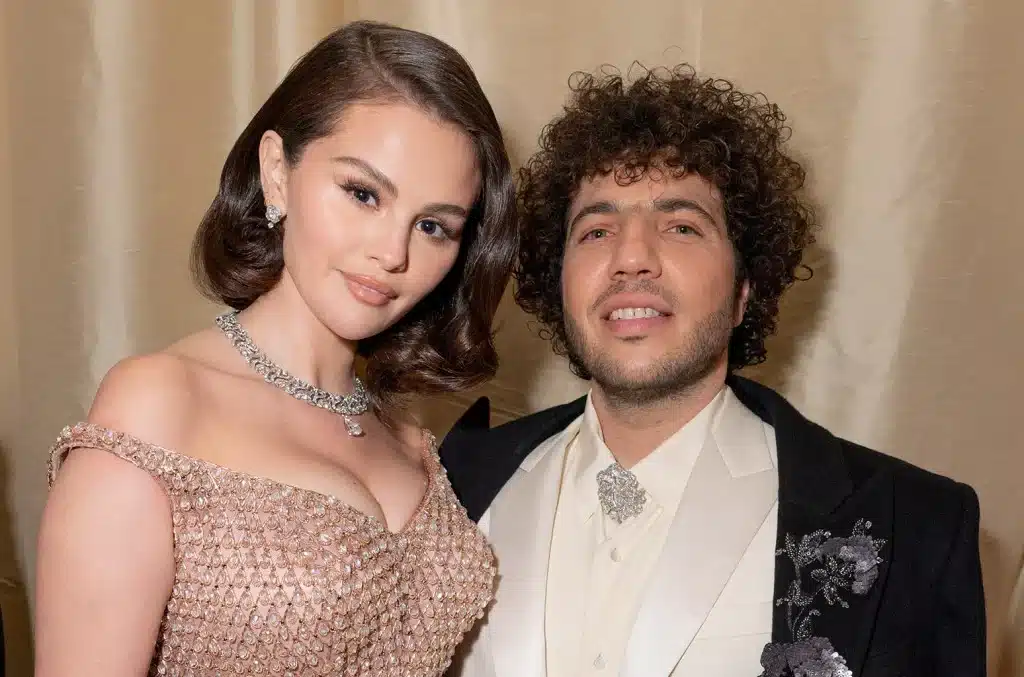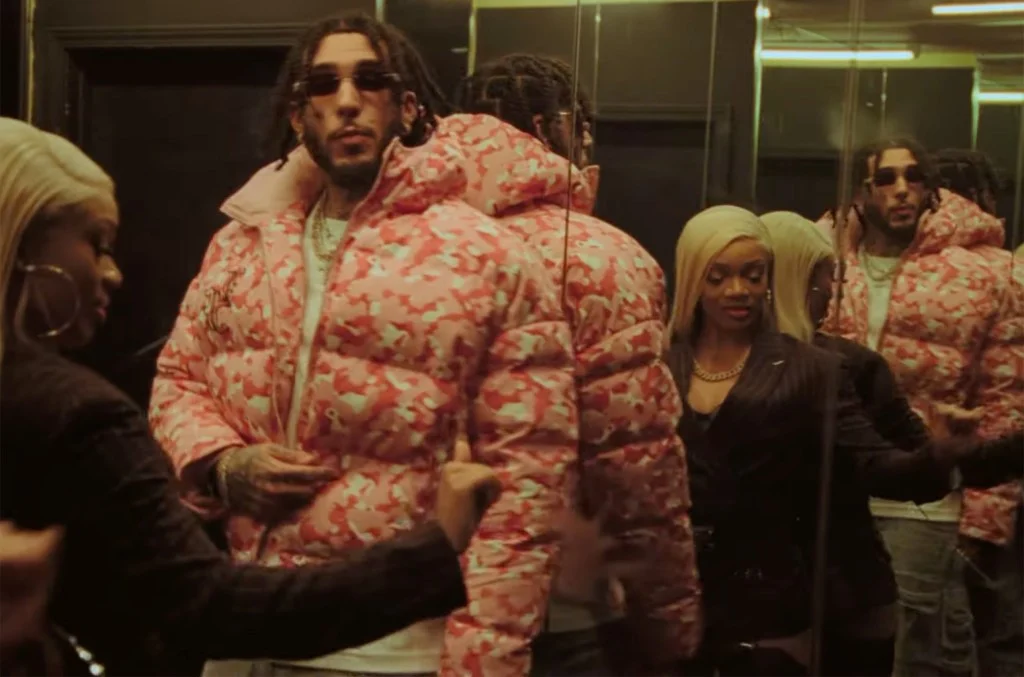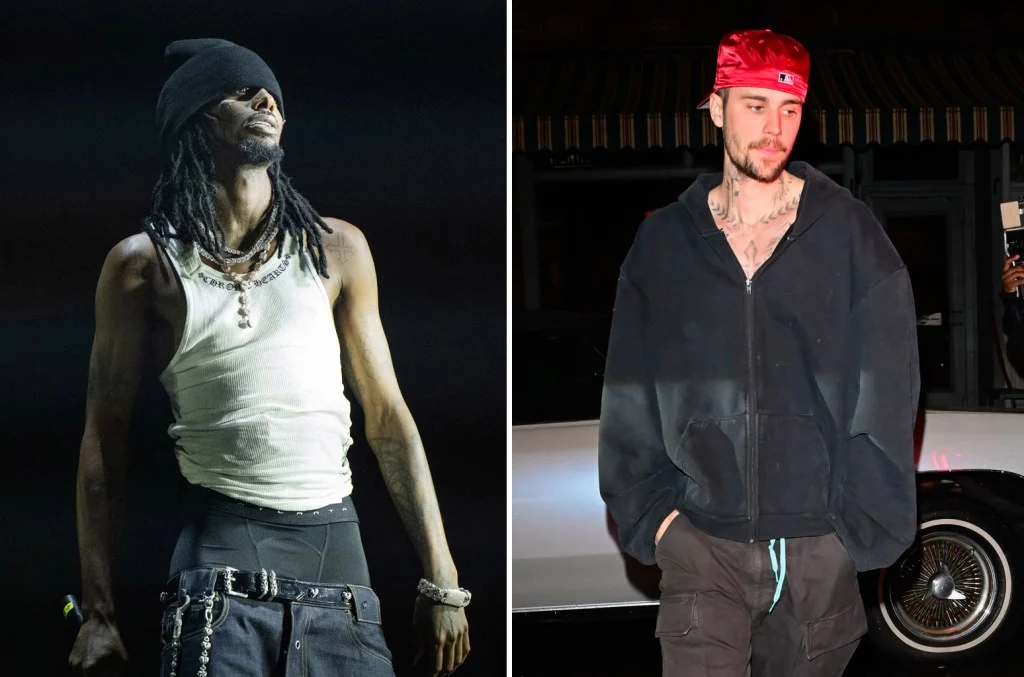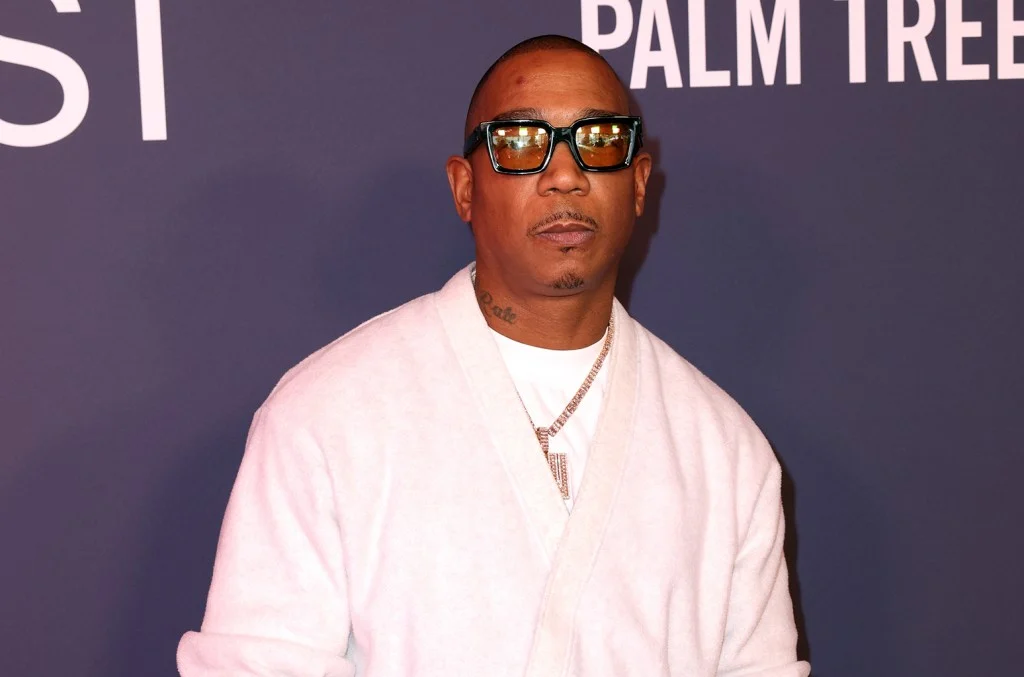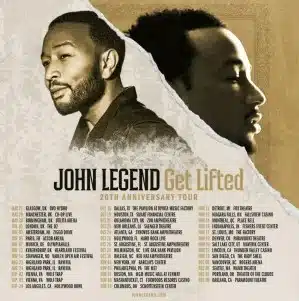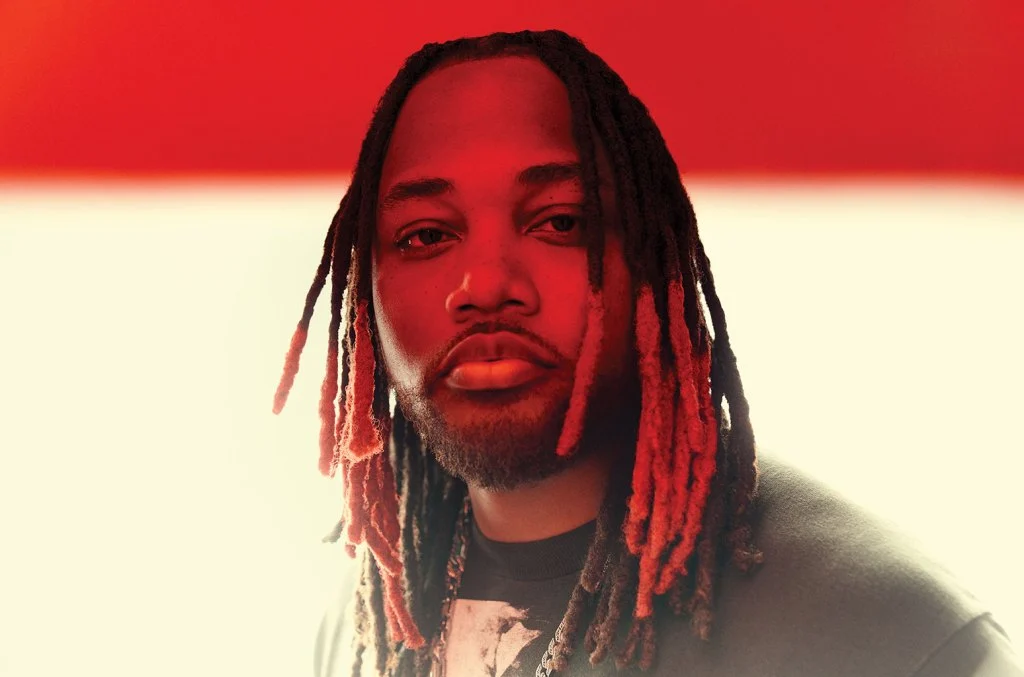R&B/Hip-Hop
Page: 87
Benny Blanco thinks his fiancée Selena Gomez is so bad “she can’t even go outside,” and he’s using a page out of Playboi Carti‘s book to prove it. Blanco posted behind-the-scenes footage of Gomez from their Interview cover shoot on his Instagram Story Tuesday (March 18) and used Carti’s “Fine S—” from his new album […]
GELO looks to continue the momentum he kicked off this year with “Can You Please?” The hooper-turned-rapper returned with his “Memphis twin” GloRilla to release the raunchy visual on Tuesday (March 18). The Ball brother hops out of the butterfly doors of his exotic orange sports car with his “Tweaker” smash playing on the radio […]
Justin Bieber put his stamp of approval on Playboi Carti‘s JB-name-dropping track “Like Weezy” from the rapper’s latest album, Music. Bieber posted a since-expired Instagram Story of himself with “Like Weezy” playing over it. In the chorus, Carti raps, “I told her I’m big like Bieber, she ain’t believe me.” And the Atlanta rapper put […]
Lil Durk delayed his Deep Thoughts albumsince being arrested by U.S. Marshals in Florida on conspiracy, murder-for-hire and firearms charges in October, but the project finally has a release date.
Explore
Explore
See latest videos, charts and news
See latest videos, charts and news
Durk released a trailer on Monday (March 17), announcing that his Deep Thoughts LP will arrive on March 28 as he remains behind bars without bond. The clip gives fans a look into his creative process as members of the OTF crew communicate with him on calls and run through songs making the tracklist’s cut.
Trending on Billboard
“I like the energy [of] what y’all are putting together,” Durk said. “Even the list of songs you sent me is good so I know y’all putting better changes on that s–t. I know it gon’ be bigger and better.”
Prior to being arrested, Durk heated up in the second half of 2024 with singles such as “Monitoring Me” and “Turn Up a Notch,” as well as “Opportunist” and “Late Checkout” with Hunxho. He even appeared on Central Cee’s Can’t Rush Greatness standout “Truth in the Lies” to kick off 2025.
Durk — born Durk Banks — was booked into Broward County jail following his arrest on Oct. 26. Los Angeles federal prosecutors unsealed an indictment accusing OTF crew members — allegedly at Durk’s discretion — of a 2022 shooting in Los Angeles targeting Quando Rondo, which led to Rondo’s distant cousin Lul Pab (Saviay’a Robinson) being killed.
Police believe targeting Quando Rondo came in retaliation to Durk’s childhood friend King Von’s murder in 2020 following an altercation between Von (Dayvon Bennett) and Rondo’s crews outside an Atlanta hookah lounge.
“After the [2020] murder, Co-Conspirator 1 made clear, in coded language, that Co-Conspirator 1 would pay a bounty or monetary reward, and/or make payment to anyone who took part in killing T.B. for his role in D.B.’s murder,” prosecutors wrote while using Rondo and Von’s initials.
Prosecutors continued: “Banks put a monetary bounty out for an individual with whom Banks was feuding named T.B. Banks ordered T.B.’s murder and the hitmen used Banks and OTF-related finances to carry out the murder.”
Durk has denied the allegations and pleaded not guilty to all of the charges. He’s remained behind bars without bond and will head to trial on Oct. 14.
The Chicago native’s last studio album, Almost Healed, arrived in 2023. The project debuted at No. 3 on the Billboard 200 and included hits such as the multiplatinum “All My Life” featuring J. Cole, which reached No. 2 on the Billboard Hot 100.
Fans of Saba have likely forged a connection with his music because of the way that he weaves spirituality and intention into his music. After earning early accolades in the mid-2000s as part of the budding indie Chicago rap scene, alongside artists like Chance The Rapper, Noname and Mick Jenkins, he independently released three albums — the aspirational Bucket List Project, the grief-stricken opus Care For Me, and the lineage studying Few Good Things — that were thematically and conceptually rich.
Explore
See latest videos, charts and news
See latest videos, charts and news
And so far, it’s hard to argue against his approach: He’s earned gold and platinum plaques for both his solo work (“Photosynthesis”) and collaborations (“Sacrifices,” alongside J. Cole and Smino for Dreamville’s Revenge of the Dreamers III compilation), he’s worked with some of the greatest ever and he’s moved from the Midwest to live in Los Angeles full-time.
Trending on Billboard
But on From The Private Collection of Saba and No ID, he intentionally aimed to make a project that was less structured than his other solo albums. No ID earned much of his reputation in the ‘90s and ‘00s by making classics with fellow Chi-Town greats like Common and Ye, but over the last decade-plus, he earned a reputation for getting his collaborators to bare their souls — whether it’s Jay-Z opening up about infidelities and insecurities on 4:44, or Killer Mike coalescing bits from his childhood and southern heritage into his Grammy-winning album Michael.
Years after meeting the legendary producer for the first time, Saba planned to simply make a mixtape with him. He now refers to the final product as an album after switching his original batch of songs for new cuts, but he still made a point to keep the free spirit that he originally had in mind. The result is a self-described “tasting menu” of songs that find him ruminating on his career accomplishments, love, Black hair, and perhaps most notably, just how confident he is in his skills.
While sitting down at the Billboard offices in New York City in early January, Saba detailed the various familial and musical threads that led to him working with No ID, memorable studio sessions with the likes of Raphael Saadiq and Kelly Rowland, and how he decides to keep working on a record despite having songs in the can already.
“An album like this, I get to showcase my bag in a lot of ways, all these styles that I feel capable of,” Saba says. “You gotta be the most comfortable version of yourself, because that’s how you get the most confident version of yourself. I think that’s who I got to meet on this record.”
How did you and No ID meet?
We met in 2018, before I dropped my second album Care for Me. He flew me out for a meeting, with the intent on signing me. This is when he was at Capitol Records (as the label’s executive vice president). My dad has been doing music pretty much forever, and he knew him from the ‘90s. So my dad had been trying to connect us for a long time, but they fell out of touch. A friend of my dad had been putting the bug in the air, and eventually it made its way to No ID.
I didn’t end up signing to him, but we stayed in communication. When he was no longer with the label, it opened up the possibility of our working relationship. It didn’t have to be so by-the-book; we were able to get creative.
Before I moved out to LA, I was just going out there for meetings and trying to squeeze in a bunch of studio sessions. Our first time getting in the studio was in 2019. I had never worked with him, so I got to just see how he approaches his craft. He’s a talker, and then he backs up what he talks about. He’s like, “I’ll make 20 beats in one session.” He sat in the corner, he made 20 beats, gave them to me on the hard drive, and then left. I’m like, “Damn. I’ve never seen that done.”
And that’s the first time where we actually worked. I had been to the studio where I’ll pull up, and he’ll just chop it up with me. That’s one thing that is important: He gets to know the artists that he’s working with. I realized the value of that in his production style, because it’s for artists to tell a story. Down the line, when we actually started working on this project in 2022, those conversations were monumental. It sets the energy and the intent to do something amazing.
That reminds me of a story he told about working with Jay-Z on 4:44. He played the Hannah Williams sample for him from the title track, and as soon as Jay heard it, he’s basically like, “Oh, so we’re doing this now, huh?” It felt like they had kicked it enough to be able to communicate through a sample like that.
That’s 100, because it’s such a vulnerable process. Getting in the studio and sharing parts of your life in any any capacity is something that you gotta feel safe and protected enough to commit to. That producer/artist relationship transcends the studio. It’s another level of trust: When you get in the studio, you can access it without a second guess. You just go in there, fully you.
My understanding is that on your previous albums you had a very hands-on role in your production. Was that the same here, or did you trust No ID to do everything himself?
No ID gave me a lot of free reign to kind of treat this album how I make music, which I think was a big learning curve. I’m very hands-on when it comes to what I’m making. I like to change drum sounds, swap samples out; I like to produce, to be a part of the song. He would let me produce around some of his ideas, which was really cool.
It was something that I didn’t even think about asking, so maybe I stepped on some toes. But it was just my process, so I didn’t even think about it that way — like, “Damn, this motherf–ker gave me all of these beats, and I’m sitting here deconstructing them.” He sent over 100 ideas my way. So I’m taking parts that I thought were the best parts of these beats, and then some of them were just perfect already, where I didn’t have to touch nothing. It was a collaborative process, but it was also like a real trust-building process.
First you said that he made 20 beats when he was sitting with you that day. Then he just said that he gave you 100.
Yeah, so the 20 beats were in 2019. That was our first session, but we weren’t working on an album. Years down the line, when we reconnected once the deal had fallen through, the relationship had become something else. I ran into him when we were in Atlanta for (Dreamville Records’ 2019 compilation) Revenge of the Dreamers Vol 3. I was actually about to go do a deal, and by the end of our conversation, I didn’t want to do the deal. But he wasn’t talking me out of the deal; we were just talking about a new possibility, something that hadn’t been on the table yet. And I’m like, “Well that’s what I want to do.”
Pandemic happens, a lot of life is happening at the same time while all of this music s–t is happening. But right before I leave for the Few Good Things Tour, I’m visiting him at the studio. He’s like, “I made a hundred beats this week. How many of them do you want me to send you?” Being who I am, where I’m from, I don’t know when I’m gonna have an opportunity like that. So I’m like, “If you made a hundred beats, send me all 100.” Just to see what would happen. I didn’t expect him to, but he made a link and he put all 100 in there.
I was just treating it like homework: Here’s somebody who’s well established, well respected and a legend. And I’m from Chicago, so it’s a big deal to me that he trusted me with 100 beats. So I want to take it serious, even though I’m on tour. That was my first time we would turn every room into a studio, and we left that tour with 14 songs. The goal was to do a mixtape at first — but I’m getting back home and we hadn’t even gotten in the studio together yet. So I’m like, “I could drop [what I’ve already made], or I could really lock in.” My plan was to release it that year, but the music kept getting better. I’m like, “I guess I gotta just trust the process and see where this goes.”
You’ve reached the point in your career where you’ve been able to work with people that you respect on individual songs — Krazyie Bone, Black Thought, J. Cole. This is different though, locking in with No ID in an extended way. How much did you look up to him before you guys had worked together?
I mean he’s No ID, so you don’t fully know what he’s responsible for. When I think of what he did in the city, I think of Ye and Common, knowing the sonic texture of what they brought to hip-hop. It was always the North Star; the trajectory of what we were doing sonically was always inspired by the soul sample, the chops, the musicianship and the feeling of that music. Twista, Do Or Die, Crucial Conflict also, but that’s a big part of it.
And making the music, you don’t know what a motherf–ker like this is capable of until you see them in action. Being around him, he’s still working like he didn’t accomplish anything. He’s still calling me talking about (studio) plugins; he’s working like a 15-year-old producer or some s–t. Learning that and being around it, it’s really contagious. You want to give more, you want to do more, you want to do better.
You’ve shown a willingness before to record something and start an album over. You did that with Few Good Things, right?
Yeah, I had a similar plan for a Few Good Things. I originally wanted to follow Care for Me with a mixtape and just do 10 to 15 songs at the end of that year. I’ll go into a project with an idea of what I’m gonna make, but time has always been the greatest storyteller. So there’s always a matter of caution that I proceed with when it comes to identifying where the projects are; just because I had an intent doesn’t necessarily mean that I gotta marry myself to it.
That’s a benefit of how we’ve put out art in the past: the people who are really tapped in with us, they grow with the music. You don’t have to rush it, because they’ll spend time in the world that you create. So you might as well make sure it’s as detailed, lush, and vivid as possible. Looking at the chessboard, the s–t is completely different from when we originally started. It’s pieces falling off, it’s people dying. It’s all type of s–t that happened, where I’m like, “I gotta stand on all of the music that I’m making right now.” And it just led me to a new place.
What is it like to finish an album, and you hear it and it’s like, “Nah, let’s do something else?”
That just means it wasn’t finished to me. I never reached that moment of “The album is finished – let me do something else.” It’s more like, “It’s still in the oven. Let me swap that song out for a different one, or let me add something to that, because that’s missing an ingredient.” I think when I was looking at the mixtape version of it, it was a great mixtape. The goalpost didn’t move, I still wanted to have that energy where I get my s–t off and say whatever I gotta say. But I also wanted to have songs that I can stand on, live with, grow with. And I think the [presence of] songs is what really changed, that became a focus.
It feels like each of your albums before this has a very clear theme. Bucket List feels like “I’m right there, I’m on the cusp of popping.” Care for Me is about grief and loss. Few Good Things is about retracing your family history, and recognizing your role in that lineage. Do you think that this album has a theme?
I would say that this idea of The Private Collection is almost like snapshots; each song has its own texture. They all feel different, so I guess they’re only connected in the sense that it is a private collection. I think all of these songs are like small worlds of their own. That’s part of the mixtape nature of it; it’s an album now, but I didn’t want it to be like my other albums that are so concept-based. This one, the concept is just me and No ID having fun through the artform, showcasing how we hear hip-hop in 2025.
I don’t think I went into those other albums with the theme in mind. Over time, the projects reveal themselves to you. I don’t necessarily need a concept to start an album, but I do need a direction. I’m in the studio searching for a feeling; I’m not just looking to make good music. Good music is like, you rap good and the beat is good. But I think it’s so much good, that good is boring to me. Did it accomplish the feeling that you was looking for? Once that feeling happens, it’s like you’ve got the first pin on the map.
On “Acts 1.5” you said, “Every verse is a classic.” On “Westside Bound,” you said, “In’t a rap n—a that I idolize.” On “Woes of the World,” you were talking about wanting to go “toe to toe with the GOAT, because you’re second to none.” Was there a moment when you realized, “oh s–t, I really, I really feel this way”?
I’ve been popping s–t throughout my career, but most of my albums have been created from a moment of circumstance — these somewhat tragic events that happened in my life — and then I need to go to the studio and have my therapy session. It’s circumstance providing an inspiration, as opposed to, “Well, what if you just made what you wanted to make and said what you wanted to say?” My confidence has always been there throughout the other albums. But I think this one, it’s just having that mixtape start. The first versions of all of these songs were just go in the studio and rap well, have some fun, drop some bars. Songs like “Back In Office,” “hue_man nature,” songs from that first version of the tape, that was the intent behind them. Just the sport of it.
I’m always searching to make what only I can make, to say what only I could say. Some of that is in perspective, because I feel differently than how the next person might feel. If I can think of an interesting way to say how I feel, you can turn anything into a bar. But it’d be crazy to spend my life doing this and not be confident. It’s years of practice. I’m 30 years old, I’ve been rapping since I was nine. If I’m not confident by now…
I want to talk about a couple songs. “Every Painting Has a Price,” it seems like you’re talking about the evolving relationship between you and your listeners. How did that song come together?
“Every Painting Has a Price” is a title that was from my last album. It meant something different to me two, three years ago. I posted one of the early Few Good Things tracklists that had songs that didn’t make it, and a friend of mine was like, “‘Every Painting Has a Price’ is a crazy title.” I’m like, “D–n, I should reintroduce this concept into the next thing that I do.” That’s kind of where my idea to pocket things [comes from]; sometimes the idea’s gotta load.
Working on that record, that was the day Kelly Rowland was in the studio, so it was such a special moment. She came in to just ask No ID something, because she was in the studio next door. I had BJ the Chicago Kid there, (longtime collaborator/producer) Daoud was there, Eryn Allen Kane was there. Everybody was in that b–ch, just doing what they were there to do. The song happens, and Kelly pulls me to the side. We still don’t got the hook, we don’t got certain lyrics down yet. She’s asking me about the song, like, “What is this to you? What does it mean?” And it was crazy to have this heart-to-heart moment with somebody like her, and she’s extracting the song. For what became a few days, weeks down the line, I’m playing a song that used to be the outro, and Raphael Sadiq is like, “Make that the intro. Get that point across early.”
I feel like it is an update to my listeners, because they haven’t gotten a full body of work from me since 2022. So I think there’s a lot to update them on in terms of how my perspective has shifted where I’m at in life. I wanted to offer context before we get into all of the rest of the s–t that I’m gonna talk and what I’m gonna say. When I say “Every Painting Has a Price,” it’s very literal. The work, the craft, the amount of time, the dedication, the sacrifice that goes into all of this f–king work is often underappreciated. Because culturally, the value of music has shifted. So I don’t think people know what all goes into it sometimes. motherf–kers out here losing their mind, motherf–kers give everything that they have to it. Knowing that, I want to give people context before you hear where I’m at.
You said that “How to Impress God” was a song that you waited your whole life to make. What made that song that means so much to you?
“How to Impress God” was actually written pretty quickly. It wasn’t that deep, because my first version was just popping s–t. The first version is just, let me flex off all of my accomplishments. But then it’s like, “How do I add an extra layer to it?”
People see what we’re doing and base their lives off of that. I’ve done all of this stuff, and I just wanted to offer people perspective that sometimes, as an artist, it doesn’t really feel like much has changed. You still gotta do all of the self work, all of the mindfulness. You gotta really hold yourself down, because no external validation can offer that to you like you can. You can be the biggest artist in the world, but if you don’t handle this part of it, none of that s–t is gonna matter.
Ja Rule’s decades-long feud with 50 Cent will seemingly never die, but Ja believes there could’ve been a different outcome had the internet and social media been more prevalent in the early 2000s.
The Murder Inc. rapper pulled up to Hot 97 on Monday (March 17) to discuss myriad topics, including Irv Gotti’s death and the Drake–Kendrick Lamar feud, which led to him recalling beef of his own, such as clashing with 50.
“I kind of wish I had the internet when I had my beef going on,” Ja said. “They would’ve seen things in real time, you know what I’m saying? They would’ve seen who this guy is in real time and then then it would have been a different outlook on what this is. You would’ve been like, ‘Oh, now I get it. This guy’s a f—ing fraud.’ You don’t get a chance to see that, feel that.”
Trending on Billboard
He continued: “Nowadays, with the internet, sometimes you get to feel too much. With the Drake and the Kendrick beef, you got these guys that break down the whole f—ing battle lyric for lyric for lyric. I don’t know if this is good or battle … We just live in a different time right now.”
Billboard has reached out to 50 Cent for comment.
Ja Rule went on to say that “people didn’t want to see Drake win” anymore after being on top for so long. He related it to sports, with NFL fans being tired of Patrick Mahomes and the Kansas City Chiefs winning three Super Bowls in five years. “Kendrick makes a hot record and everybody jumps on it,” he said.
“Drake’s in a position right now, and I know this position well. He’s in a position where two plus two is adding up to seven, and he just doesn’t understand it,” Rule added. “He’s like, ‘How can I be the hottest motherf—er for 10 years and now everybody wants me to lose?’ He’s not understanding the dynamic of that.”
He went on to claim: “Drake could go and make a thousand f—ing dope records right now. People are rejecting his deposit. So that’s what he’s going through right now. But if he was an athlete, and you go put up f–king 55 — you gonna put up 60 points in the night, I can’t deny that, man.”
Ja Rule’s overarching advice to rappers? “Stay out of beef,” he said, before going back to his 50 feud. “I don’t give a f–k what happened. I’m a real one, you know what I’m saying? I don’t think about that s–t, it don’t bother me.”
Watch the full interview below. Ja speaks on his feud with 50 as well as Drake and Kendrick shortly after the 43-minute mark.
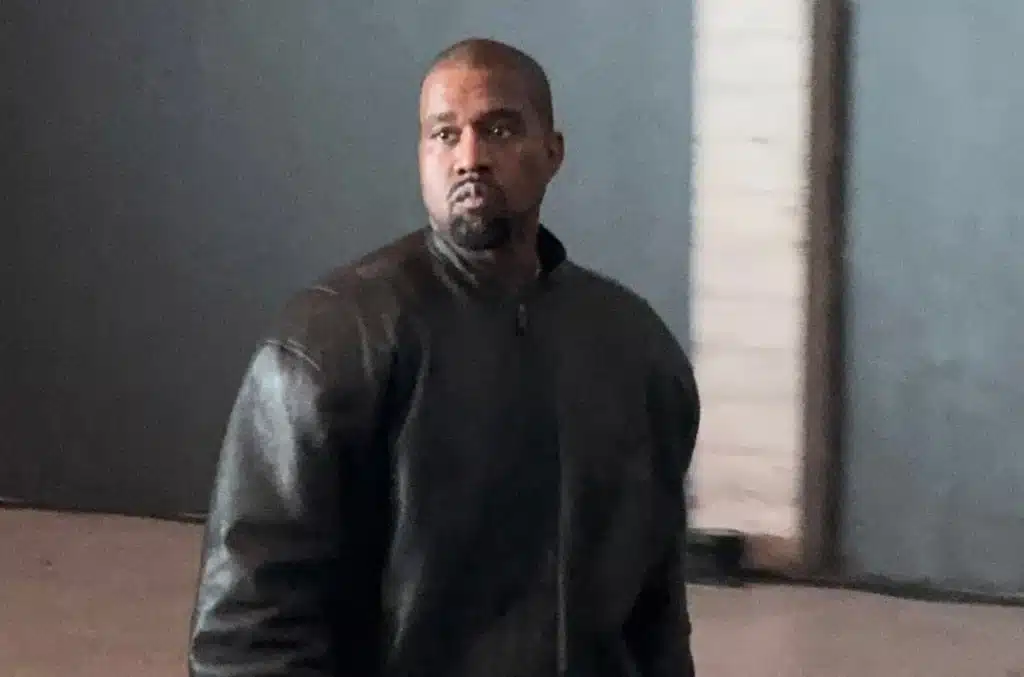
There was once a time when Playboi Carti made Ye’s (formerly Kanye West) list of rappers who never crossed him, but that doesn’t appear to be the case any longer.
The embattled rapper went on an extended X tirade targeting Carti and many of his collaborators and superstar peers throughout hip-hop early Tuesday (March 18).
He initially voiced his issue with Carti (born Jordan Carter) allegedly taking him off his Music album, and felt the “All Red” artist crossed the line when requesting vocals from West’s daughter North after Kim Kardashian posted the project to her Instagram Story.
“I DECIDED NORTH WONT BE DOING ANY SONGS WITH CARTI HOW IT LOOK FOR ME TO GET LEFT OFF THE ALBUM AND THEN HE ASK KIM TO HAVE VOCALS FROM MY DAUGHTER,” Ye wrote. “I DONT A F–K ABOUT NONE OF THIS INDUSTRY SHIT AND HOW ITS A SKIMS LINE IN THE FIRST PLACE AND I DONT GIVE A F–K WHAT NO COMMENTS THE MAN HAS THE FIRST AND FINAL SAY OVER HIS KIDS.”
Ye flipped the script on Carti while using the Atlanta rapper’s ex Iggy Azalea and brought the “Magnolia” musician’s son, Onyx, into the mix.
“HEY IGGG AZALEA I NEED TO GET ONYX VOCALS ON MY SONG THATS MY NEPHEW OH AND IMA RAP ABOUT ONE OF YOUR BUSINESSES THE F–k,” he added. “I HELD MY TONGUE ABOUT MOT BEING ON CARTI ALBUM HIM GOING TO MY EX TO ASK MY DAUGHTER TO BE ON A SONG 2 DAYS LATER WAS TOO FAR NOBODY FINNA PLAY WITH ME.”
Azalea got wind of Ye’s remarks and fired back in her child’s defense. “Ye, I understand the point you want to make. I say this with kindness & as a mother: Please, leave my child out of this. At the end of the day, Jordan has other children (less famous… Does it matter?) but it seems only my son gets harassed in perpetuity about or on behalf of a man he has no relationship with,” she wrote on X. “Does he read it? No. Hes a child. But it creates a digital legacy & an odd (s—-y) situation for him to one day discover & endure in perpetuity from strangers online. Can I please have some peace?”
The embattled Chicago artist turned his focus elsewhere and claimed he actually “HAAAAAATED” Kendrick Lamar’s “Not Like Us” Drake diss.
He continued to go after Pusha T and Ty Dolla $ign. “NOBODY GET A PASS I WAS A PART OF SO MANY OF THESE NIGGAS SUCCESS AND A LOT OF N—-S,” he ranted, blaming to his antisemitic hate speech — for which he’s been roundly condemned — as the reason for his peers pulling away. “PUSHA TALKING ABOUT HE DONT AGREE WITH MY POLITICAL OPINIONS BRO I HATE ALL THESE N—-S THATBIVE SAT AND CHOPPED SOMGS FOR TY AINT HAVE TO USE THE TERM HATE SPEECH EVERY NIGGA IN THE INDUSTRY IS A SLAVE TO THIS F—-T A– JEWISH INDUSTRY EVERRRYYYYY ONE DO YOUR F–KING DISS SONGS OR PULL UP.”
West also posted photos hugging Kid Cudi, Playboi Carti, Travis Scott and Virgil Abloh while saying they turned their backs on him after his hate speech.
He went on to target Tyler, the Creator, saying he’s never made a “memorable song” and called out Future and Metro Boomin after they allegedly called him to hop on the “Like That” remix only to dead him afterward.
“THIS N—A HAS NEVER MADE A MEMORABLE SONG HES LIKE IF AN ARTIST CHECKED EVERY BOX OTHER THAN HAVING ANY GOOD VERSES OR SONGS AND HIS LAST ALBUM RIPPED OFF MY WHOLE LANGUAGE,” he wrote about his “Smuckers” collaborator.
Billboard has reached out to reps for Future, Pusha T, Ty Dolla $ign, Playboi Carti, Kendrick Lamar, Travis Scott and Tyler, the Creator for comment.
Over the weekend, Ye released a song titled “Lonely Roads Still Go to Sunshine,” which appears to feature Diddy and North. Kardashian had reportedly trademarked their daughter’s name in a legal tactic to block the track’s release.
John Legend is going global with the 20th anniversary celebration of his debut album Get Lifted. The 13-time Grammy Award winner’s Get Lifted 20th Anniversary World Tour — with select dates produced by Live Nation — will visit more than 40 cities across the U.K., Europe and North America when it begins on May 27 in Glasgow, U.K. Additional major stops include The O2 in London, Ziggo Dome in Amsterdam, Accor Arena in Paris, Hollywood Bowl in Los Angeles and Barclays Center in New York before the tour wraps on Dec. 9 in Oakland, Calif.
Explore
See latest videos, charts and news
See latest videos, charts and news
In tandem with the tour announcement, Legend will visit The Tonight Show Starring Jimmy Fallon Tuesday (March 18). Doubling as both a talk and musical guest, he will perform the Get Lifted track “Used to Love U” along with Black Thought and backed by The Roots.
Trending on Billboard
“Used to Love U” is one of several fan faves featured on Legend’s Grammy-winning breakthrough album. Released Dec. 28, 2004 (Legend’s 26th birthday) via GOOD Music, Sony Urban Music and Columbia Records, the 14-track Get Lifted was comprised of songs written or co-written by Legend, who also served as an executive producer. In addition to “Used to Love U,” the album spun off the singles “Number One,” “So High” and “Ordinary People” (his first top 40 Hot 100 hit at No. 24) while notching No. 4 and No. 1, respectively, on the U.K. Singles Chart and U.K. R&B Singles Chart.
With its engaging and seamless fusion of R&B, neo-soul, hip-hop and pop, Get Lifted gave Legend his first Billboard 200 top 10 (No. 4) and first No. 1 on the Billboard Top R&B/Hip-Hop Albums chart. It later scored eight Grammy nominations and won Legend three statuettes — best new artist, best R&B album and best male R&B vocal performance for “Ordinary People.” The single as well as the album have since attained RIAA double-Platinum status.
Also available now are two special Get Lifted (20th Anniversary) packages:the digital deluxe and deluxe 3LP vinyl editions. Highlights on both include remixed versions of eight tracks such as the aforementioned Black Thought guesting on the revamped “Used 2 Love U.” Among the editions’ other special guests are Tems, Killer Mike and Lil Wayne, and Simi. Expanding on the original album with 11 bonus tracks, Get Lifted (20th Anniversary) offers eight brand new remixes, rare B-sides and two previously unreleased studio performances recorded during the original Get Lifted sessions.
Legend will be backed by his full band on the forthcoming world tour. The setlist will include fan faves, deep cuts and fresh interpretations of seminal tracks from Get Lifted. The EGOT-winning singer-songwriter-pianist will also perform an array of his other career-defining hits.
Additional dates for the Get Lifted 20th Anniversary World Tour will be announced soon. In the meantime, presales for the U.K./Europe dates begin March 19, with general onsale starting March 21. North America presales kick off March 26, followed by general on-sale starting March 28. For additional tour details and ticket information, visit Legend’s website.
See the full list of tour dates below:
Leon Thomas‘ 2024 breakout hit “Mutt” is adding a big dog to the remix: Chris Brown. The fast-rising R&B star officially announced the remix Monday (March 17) on Instagram, writing, “R&B Olympics, this Friday,” while tagging Brown’s account. Thomas debuted the remix while performing at The Garden in Dallas over the weekend. “Mutt” is the […]
Appearing on producer Zoomo’s album Absolution, released in October of 2024, the music video for “Good Orderly Direction” featuring Navy Blue is finally here.
Directed by Paul Merelle, the visuals are just as soulful as the beats and the bars as Zoomo and Navy find themselves taking in the sights and sounds of Central Park on what looks like a damp, autumn day.
Explore
Explore
See latest videos, charts and news
See latest videos, charts and news
With the beat switch in the middle, “Good Orderly Direction” is essentially two songs with the West Coast rapper doing what he does best by getting introspective. He starts off the first verse telling the listener to chill out a bit, rapping, “Alone on a path tryna get the thoughts freed up/I’m goin’ in the game 4-3 up/If you movin’ through this life on the gas, better ease up/Jesus Christ on the cross, gotta bleed/River full of fish, be weary of the greed/Solve our problems with a spliff, every young brotha’ need love.”
Trending on Billboard
He then ends the with, “It only gets harder as you go/You alive, and that’s the sacred part of how you grow,” reminding us to keep on keeping on because life is a garden, dig it?
On the second verse, after the beat switches a bit, Navy Blue talks about the beauty in facing your anxieties as he stands in the middle of Central Park’s Naumburg Bandshell. “Even when I’m hurt, I’ma smile,” he raps. “I done learned just to love me a bit/Fear stacked, I was perched on a pile/Down bad, I can gladly admit/Imperfect, I’m searching aloud/Loose garment, I can’t wear a shroud/And this sack bring a brother closer to God.”
In case you’re not familiar with Zoomo, he’s a producer out of North Carolina who’s down with YL and Starker’s NYC collective RRR and has been bringing the feeling back with beat tapes — a medium in hip-hop that has become a rare occurrence these days — his most recent project Absolution features instrumentals and includes features from Navy, Da$H, AKTHESAVIOR, YL, Starker, Wiki, ANKHLEJOHN, Aasir, VIP Skylark, Goya Gumbani, and Papo2oo4.
You can check out the video below.

 State Champ Radio
State Champ Radio 